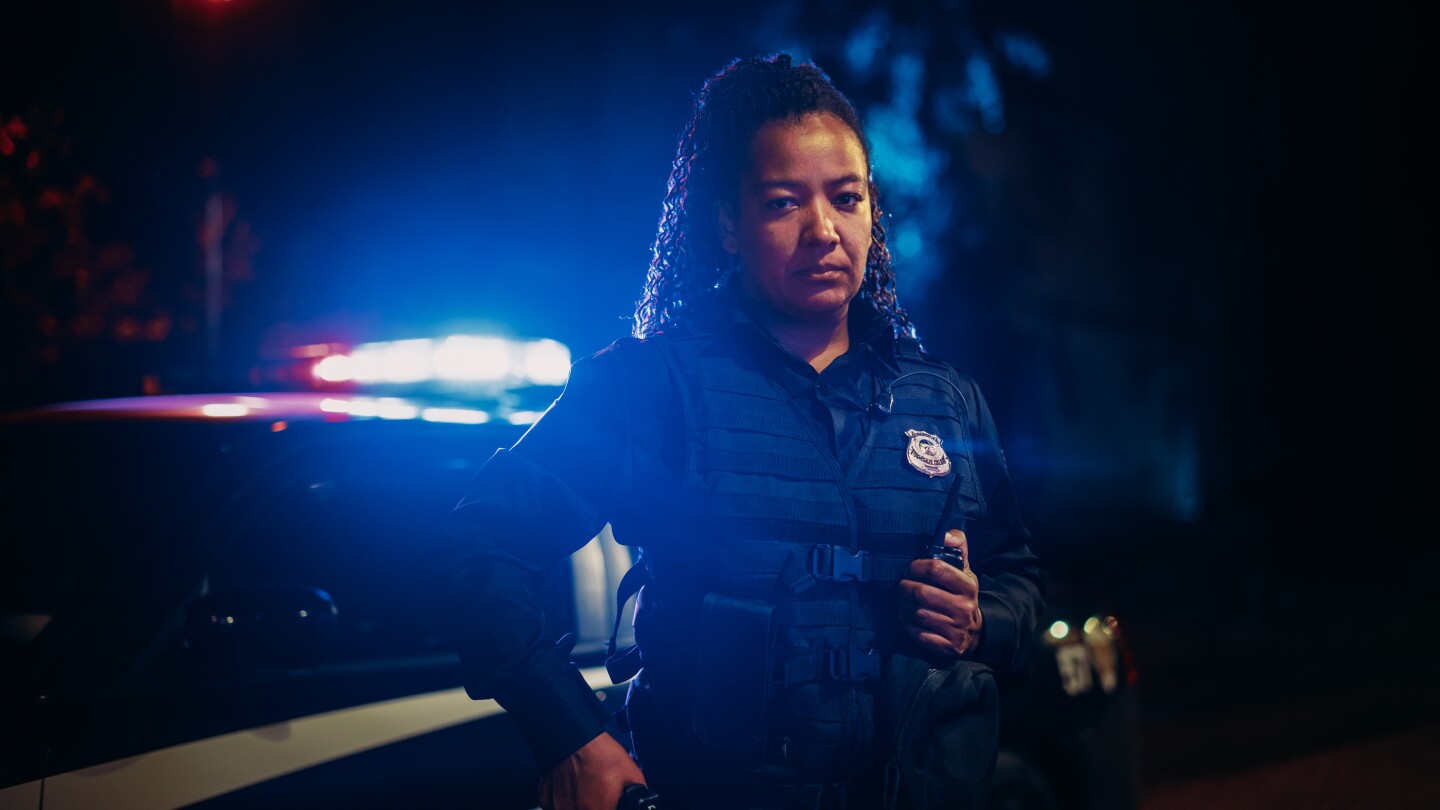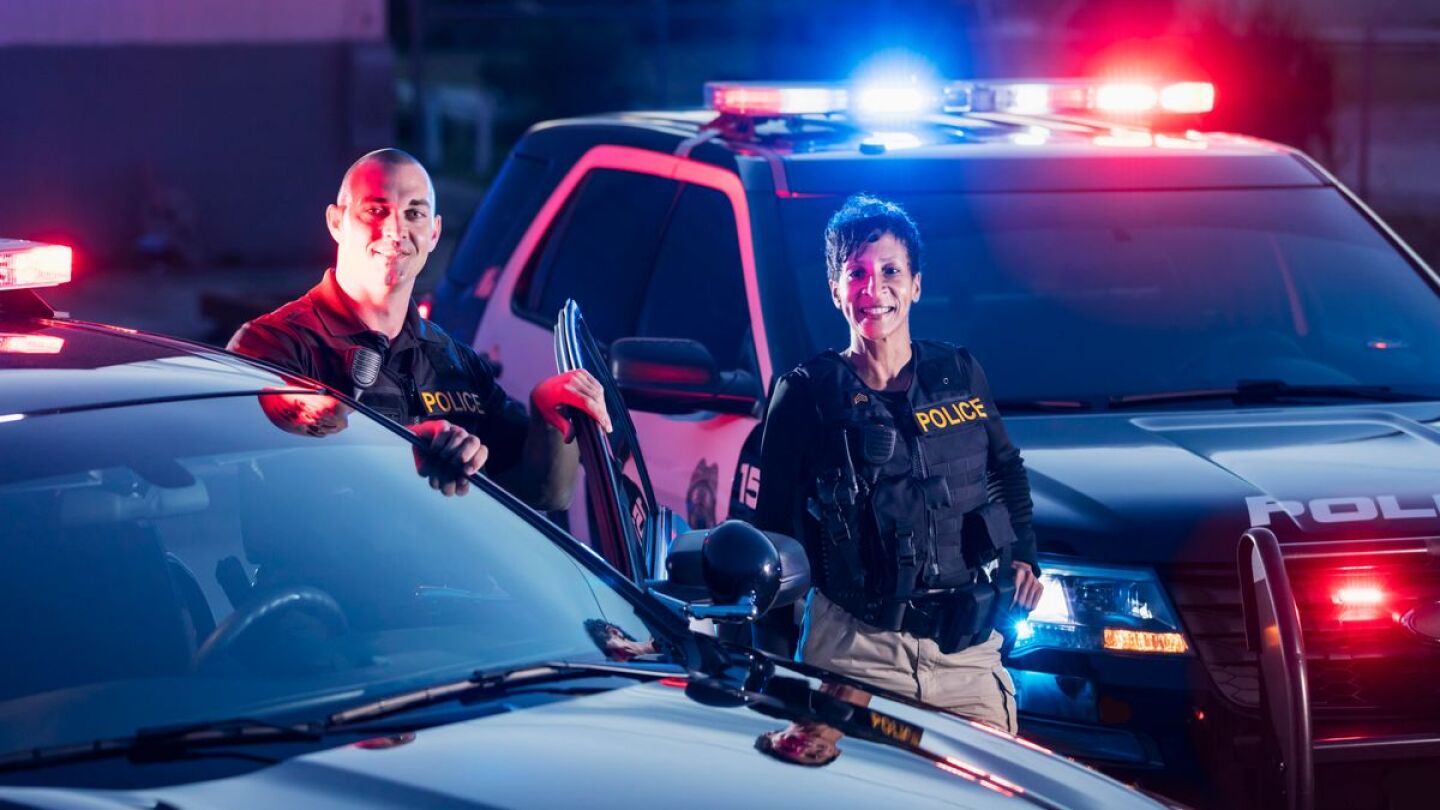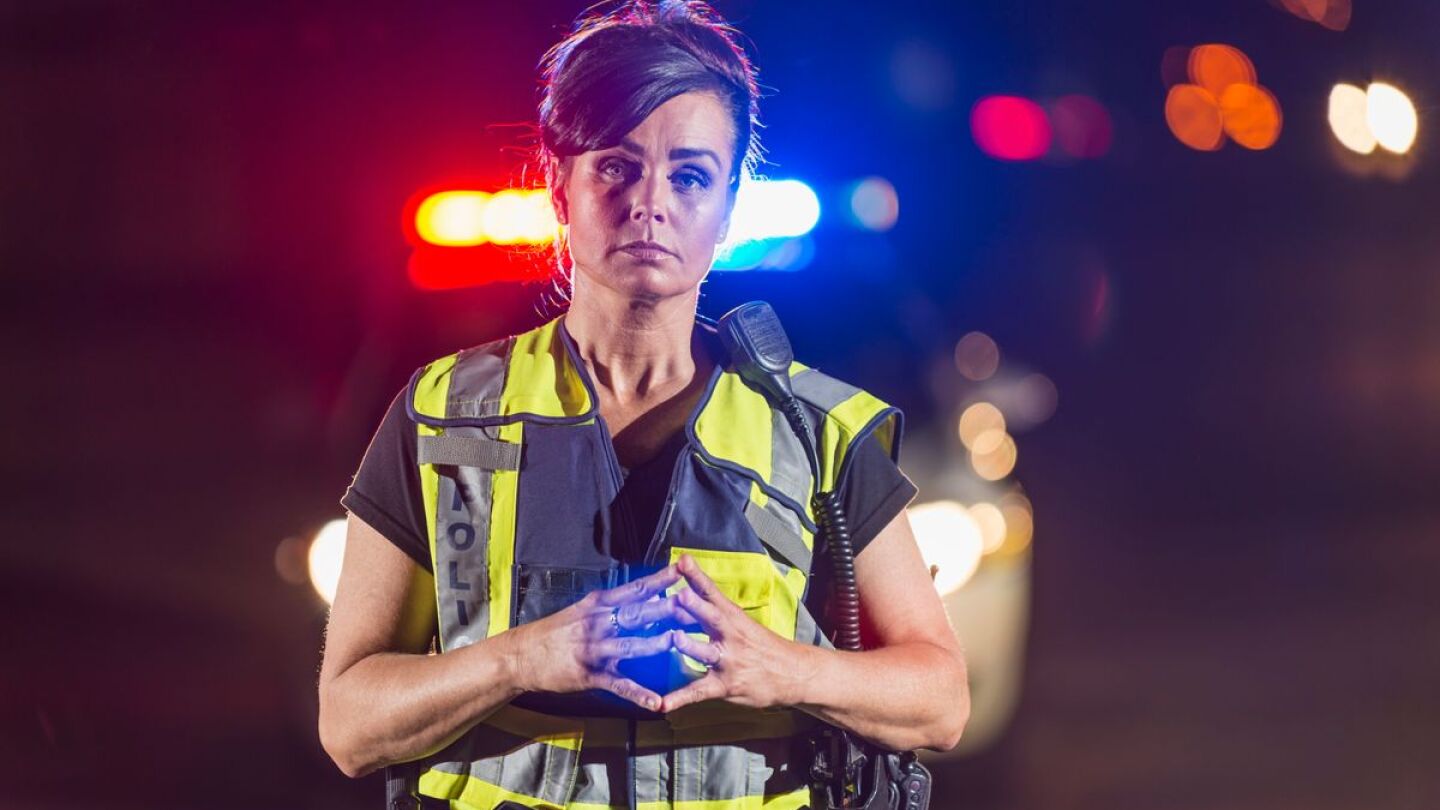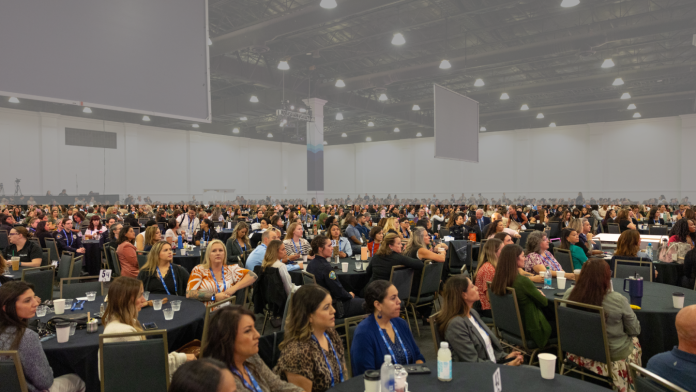[[{“value”:”
Thank you for reading this post, don't forget to follow and signup for notifications!
Have you ever been to a law enforcement training conference — scratch that — have you ever been to any conference that:
Pulsed with limitless energy from start to finish
Felt like a wedding reception, comedy special and awards show all in one
Demanded “The Price Is Right”-level enthusiasm from every raffle prize winner
Never once felt stuffy, uptight, formal or exclusive
Radiated belonging, inclusivity, passion, purpose and fun
And delivered training that was impactful, resonant and rich in content
If not, let me introduce you to the Women Leaders in Law Enforcement (WLLE) Conference, held September 9–11 at the Town & Country Resort in San Diego.
| DOWNLOAD: Forge your future: A career guide for women in policing
Where connection takes center stage
The moment you step into the grand ballroom at the Town & Country Resort, you can feel it — you’re immediately engulfed by house music that pulses through your bones and demands a physical response. It’s not just décor or sound; it’s an invitation to connect, to be inspired and to belong. Affirmations line the walls, reminding each of us that we are exactly where we are meant to be. You weave through a sea of round tables to find an open seat. If you’re not already dancing, you get the sense that it wouldn’t be weird if you did.

Photo/DVR Productions
Once the ballroom fills to capacity, there’s a powerful symbol of unity in our profession — uniformed personnel, decorated command staff, agency teams in matching tees, men and women in jeans and BDUs, facility dog handlers, retirees. The music cuts. Silence falls and gives way to reverence.
An all-female honor guard presents the colors with precision, their formation crisp and powerful. A pipe band circles the perimeter, bagpipes and drums piercing the air, rattling the bones of every soul in the room. Then, a female San Diego Police Department officer steps forward and raises the roof with the national anthem. Goosebumps ripple through the crowd, followed by thunderous applause.
And just as everyone settles back into their seats, in true WLLE fashion, the atmosphere shifts again. From the back of the ballroom, a tandem bike bursts through the double doors, piloted by the infamous conference emcees, Heather and Julie. They zigzag through impossibly narrow table lanes, high-fiving as they go — Julie rocking a unicorn helmet. They zip toward the stage, pretending to take wrong turns just to work the crowd. The laughter is contagious. When they finally reach the stage, together, they kick off the 10th year of their unforgettable hosting. And with that, WLLE 2025 is officially underway.

Photo/DVR Productions
The California Police Chiefs Association’s Women Leaders in Law Enforcement Conference (newly rebranded as Rise: Women in Policing) brought together more than 2,000 attendees from across California and beyond. For three days, we learned, connected, reflected and celebrated. The event blended powerhouse keynotes, content-rich breakout sessions filled with practical tools, promotional preparation through mock interviews and the kind of networking that turned contacts into mentors, sponsors and lifelong friends.
Year after year, this event proves why leadership conferences — specifically those designed for women and other underrepresented groups — are so vital. The opportunities for connection are exponential, creating space for mentorship, advocacy, friendship, support and allyship. The full menu of training classes spans every corner of leadership and wellness, with very few geared exclusively toward women. All who attend leave with valuable insight and perspective.
For many of us, WLLE (now Rise) is more than just a conference. It’s a movement — and a reminder of why these spaces matter: places where women and their allies in policing can learn, grow and celebrate each other in ways that ripple far beyond the ballroom walls.
What made this year stand out
Big-name general sessions
Ryan Munsey, co-founder of The Better Human Project, opened with neuroscience and human performance. His message was much more than theory; it was a roadmap for aligning decisions with core values, building emotional resilience, expanding “bandwidth” under pressure and cultivating accountability in culture. He challenged us to do more than just “try” — to lead intentionally and purposefully, especially in high-stress professions.
Captain Heather Glogolich (New Jersey Institute of Technology PD) closed day one with Valor and Virtue. In 2008, she survived a brutal domestic violence incident at the hands of her ex-husband. Her story was harrowing, but her vulnerability and courage transformed pain into purpose. Quoting Brené Brown, “One day you will tell your story of how you overcame what you went through, and it will be someone else’s survival guide,” she left the audience in tears and earned a standing ovation.

Photo/DVR Productions
Simon Sinek, joined by retired Chief Chris Hsiung, anchored day two. Unlike a rehearsed keynote, Sinek came with nothing prepared to this “fireside chat.” Instead, he took live questions, tailoring his insights to challenges faced by women in law enforcement. Known globally as the author of important leadership books like “Start with Why” and “Leaders Eat Last,” Sinek’s passion for women in leadership roles shone through every answer.

Photo/DVR Productions
Gordon Graham, risk management expert, practicing attorney and Lexipol founder, headlined day three. Known for shaping generations of law enforcement with his daily tips from Lexipol after a legendary career with the California Highway Patrol, Graham delivered his “10 Fs for Success”: family, faith, food, fun, funds, fitness, freedom, function, friends and fulfillment. His theme was simple: care for people — family, coworkers, community, country — and success will follow.

Photo/DVR Productions
Jonni Redick, retired Assistant Chief of the California Highway Patrol, closed the conference with reflections on her 30-year career. Her message on inclusion, accountability and perseverance resonated deeply: “I’m no longer shrinking to be digestible. You can choke, respectfully.” A reminder that women belong in these spaces and should never apologize for their presence.
| LISTEN: Assistant Chief Jonni Redick discusses how officers can prepare for promotion in this episode of the Policing Matters podcast:
Breakout sessions that inspired and challenged
Developing and communicating your brand
Captain Amira Eppolito, a 29-year LAPD veteran and former LAWPOA (Los Angeles Women Police Officers and Associates) president, and Detective Erika Kirk, a 20-year veteran and current LAWPOA president, delivered a practical session on building authentic leadership brands. They emphasized clarity, consistency and intentionality in shaping reputation both in person and online. Their strategies for confident introductions and purposeful digital presence gave attendees concrete tools to stand out at any rank.
Stabbed, grabbed and emotionally dragged: Perseverance in a male-dominated world
Detective Andrea Moore of the Lacey (Wash.) Police Department survived a life-threatening officer-involved shooting and shared her long recovery journey with humility and humor. She spoke candidly about PTSD, resilience and the mental health challenges that followed. Her message was clear: show up for what matters, protect others, honor your values and stand in your truth. True leadership is measured not by how far you go, but by how far others go because of you.
Building bridges: Strategies for collaborative bargaining in law enforcement
Manhattan Beach Police Chief Rachel Johnson and Liebert Cassidy Whitmore attorney Laura Drottz Kalty reframed union negotiations as opportunities for collaboration rather than conflict. They stressed respect, communication and daily investments in relationships as the foundation for successful bargaining. Their real-world insights showed how chiefs and labor leaders can strengthen agency culture through dialogue and trust.
Waking up after an American nightmare
Lieutenant Misty Carausu of the Alameda County (Calif.) Sheriff’s Office recounted her role in solving a landmark kidnapping and rape case that exposed systemic failures in victim treatment. Her presentation combined investigative lessons with a call for leaders to drive progress rooted in empathy and justice. It was equal parts practical and inspirational, showing how persistence can reshape institutions.
| WATCH: Lieutenant Misty Carausu discusses the landmark case on the Policing Matters podcast:
The path to resilience
Sergeant Siobhan McTighe from the Windsor (Colo.) Police Department shared how a career pause after PTSD, anxiety and depression from a devastating critical incident led her to redefine resilience. She introduced a five-pillar framework — gratitude, connection, diet, movement and breathwork — that grew from her own healing process. Her honesty and practical tools gave officers tangible ways to navigate the unavoidable stress of policing.
Mock interviews: Career lifts in real time
One hallmark of WLLE is the mock interview panels for aspiring sergeants, lieutenants and captains. I had the honor and privilege of serving on a sergeant-level panel with Pasadena (Calif.) Police Department Lieutenant Domino Scott-Jackson. We interviewed three women from all over the state of California who embodied servant leadership, preparation and authenticity. Their answers weren’t just rehearsed responses — they reflected genuine readiness to lead with people-first priorities. These panels aren’t symbolic — they tangibly close access gaps that often disadvantage underrepresented groups.
Heather and Julie: A decade of energy
Heather Huiskens (retired Fremont Police Department sergeant) and Julie Cochran (Livermore Police Department captain) have been WLLE’s heartbeat for a decade. Originally tapped to announce raffle winners in 2015, their banter was so unforgettable that they’ve been asked to be a part of the event every year since, officially becoming the conference’s emcees last year.
This year, they once again stopped for a dance break that required strangers to hug, dance and sing to Whitney Houston’s “I Wanna Dance with Somebody.” They teased each other mercilessly, sparred with jokes unsoftened even for chiefs in the room and kept the week flowing with humor and heart. Their style forces every keynote speaker to match their energy — or surrender the mic.
I was invited to participate in one of the lunch activities they hosted — a “Family Feud” game between Julie and Heather’s “families.” I ended up on Julie’s team, and in our pregame huddle she informed us all that we were going to lose and had better be hilarious doing it. I don’t think I’ve ever felt more pressure in a professional setting, but we embraced the spotlight and laughed our way through a game that ended in a completely one-sided victory for Heather’s team. We will forever argue that it was rigged.

Photo/DVR Productions
Rebrand with purpose
CPCA ended the conference with a surprise announcement. After 19 years, WLLE has evolved into Rise: Women in Policing, a brand that explicitly centers around connection, education and community while keeping the event open and valuable to all ranks and genders.

Photo/DVR Productions
The announcement came with a seven-minute video chronicling WLLE’s history, told by the women who built it. As the organization approaches its 20th anniversary, they recognized the need to evolve. The rebrand was community-driven, shaped through surveys, focus groups and collaborative design.
The result is more than a new name. Rise reflects the people it serves. As the closing message declared: “This is more than a new name. It’s a movement. Together, we Rise.”
Why conferences like WLLE/Rise matter (especially for women in policing)
Network effects multiply. Concentrating thousands of change-makers in one place accelerates introductions to mentors, sponsors and cross-agency allies, forming relationships that outlast the conference.
Mentorship fuels mobility. Mock boards and candid hallway consults demystify testing, file prep and interview strategy, closing the access gap that often disadvantages underrepresented groups.
Role model visibility. Seeing women leaders from sergeant to chief teach hard-skill blocks like tactics, negotiations and critical communications counters the stereotype that women’s conferences are about “soft skills.”
Wellness becomes operational. Several sessions grounded resilience in evidence-backed wellness dimensions (emotional, physical, social, occupational, financial, spiritual, environmental, intellectual), which correlate with retention and readiness.
Allyship on stage. Keynote speakers like Sinek and Graham underscored that this isn’t just “for women.” It’s for the whole profession.
Final thoughts
Everywhere you looked, inspiration was literally on the walls – sticky notes filled with encouragement like “Be the woman you would look up to,” “I am not alone” and “Kindness always matters.”
During a coffee break, a female officer approached me who had taken my CPOA class in May. She told me the course changed her life — restoring hope in her department and in her career after she’d felt ready to leave policing. That single moment reminded me why storytelling and connection at conferences like this matter so much.

Photo/DVR Productions
Finally, one of the best parts of the week was experiencing WLLE with my husband for the second time. At the end of day one, we went out to dinner with his aunt, a San Diegan, and ended up at a speakeasy bar inside a hipster hotel nearby. After clinking our cocktails, she looked at her nephew and asked, “So, did you learn anything today?” He answered, “This conference isn’t just about learning. It’s about inspiring and empowering.”
That’s exactly what WLLE/Rise is: a celebration of women in policing, a space where vulnerability meets strength, laughter balances tears and mentorship fuels growth. When we create intentional spaces for women and allies, we elevate the entire profession.
Hope to see you next year — September 9–11, 2026, in San Diego.
WOMEN IN LAW ENFORCEMENT









Women in Law Enforcement
Bras, breasts and body armor
“A female officer’s bra choice affects how her armor fits, how comfortable she is and even how effectively she can move. A bad bra fit can mean bad armor fit.”
“}]]



